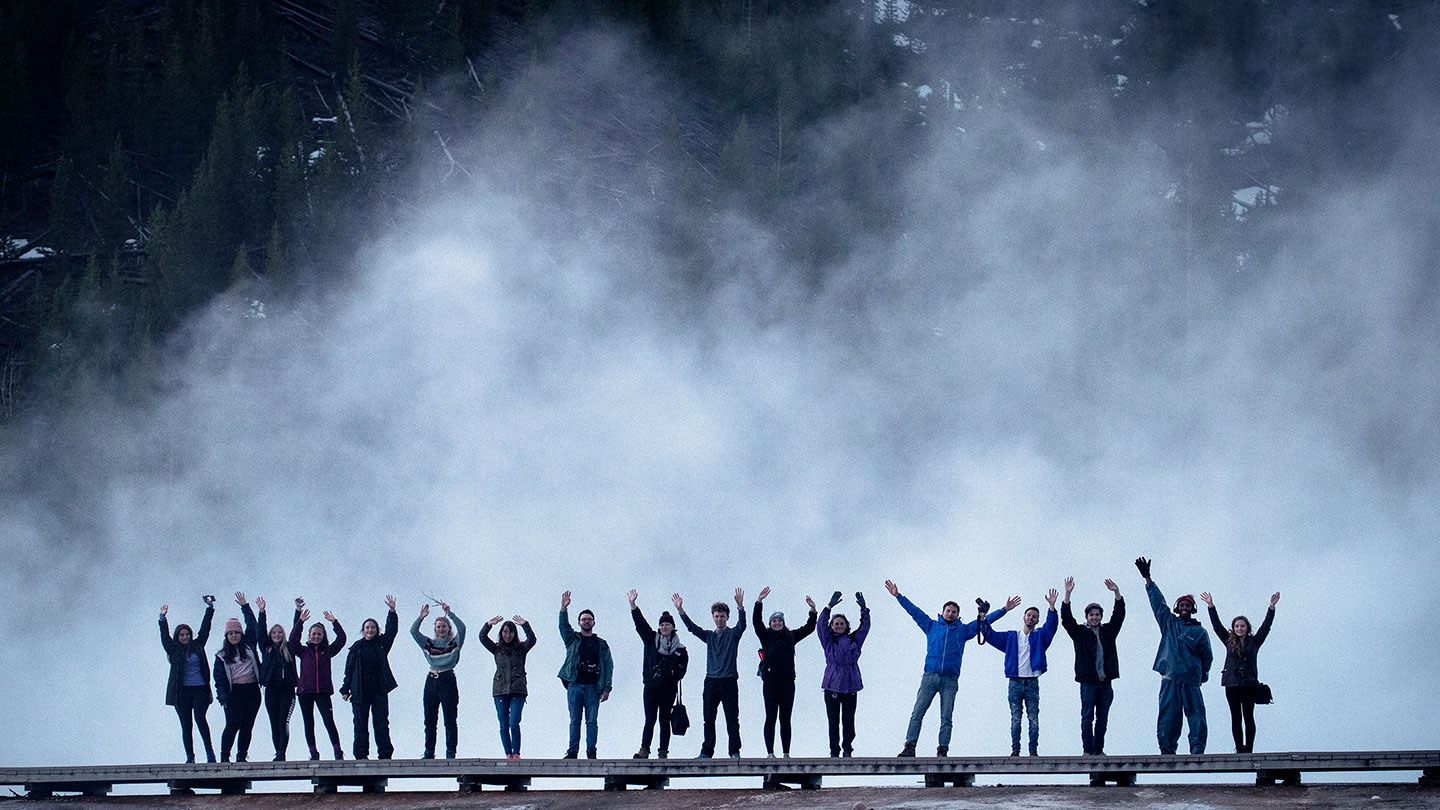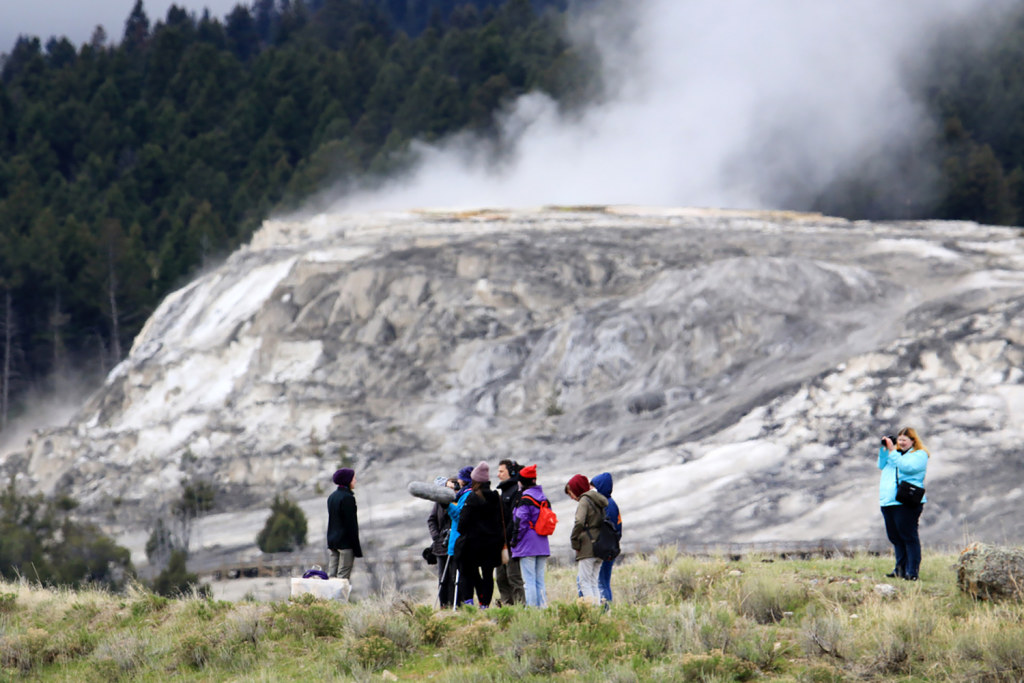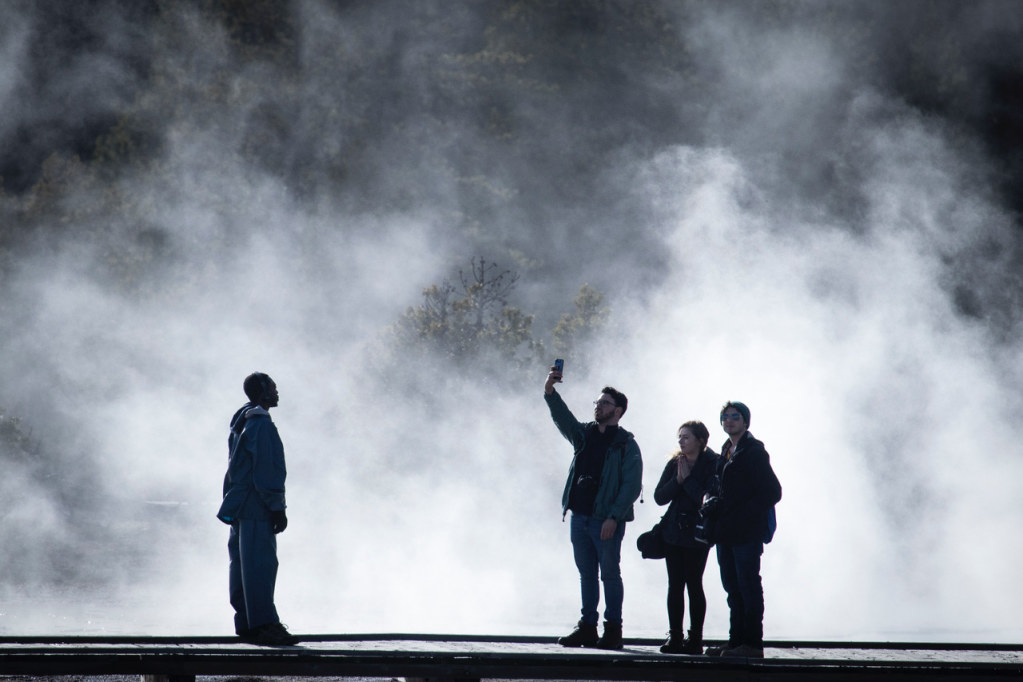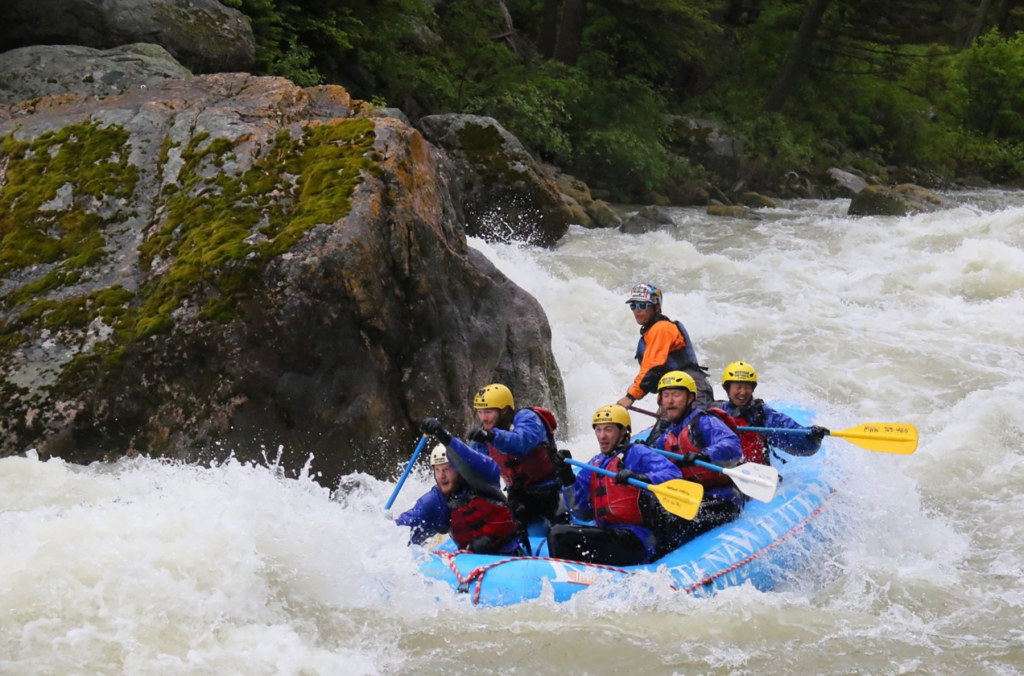
Into the Wild
Science and media students explore natural wonders in immersive summer programs out West
Photo by Thomas E. Franklin
Teams of Montclair State students were embedded in nature this summer, surrounded by the spectacular beauty of the mountain ranges and wonders of Yellowstone. The natural world opened them up to personal reflection and creativity, with projects as varied as mapping 3.3 billion-year-old metamorphic rocks to recording soundscapes unique to Yellowstone’s ecology.

If you listen to the stories Allison Giordano ’19 tells about her trip, you may want to leave the lights on. Haunted by Yellowstone’s mysteries, she has produced a podcast for the School of Communication and Media of paranormal and supernatural stories she uncovered on the trip.

“I’ve always loved ghost stories and legends because even if you’re a skeptic, there’s something about it that pulls you in,” says Giordano, a May graduate with a degree in Television and Digital Media who joined a field class on reporting and thinking in the wild.

Montclair State partnered with Edge Hill University in England for the Yellowstone adventure, which included a fruitful program on developing students’ creativity and collaboration across disciplines.

“I tried to use Yellowstone as a backdrop to introduce the students to the concept of creative thinking, to incorporate what we were seeing – whether bison or geysers or a man-made historic inn – with the ideas of land conservation and climate as a context to talk about creativity,” said Phoebe Farber, a Montclair State adjunct faculty member who led the sessions.

Podcasting the wild
Reporting from the Wild West was a first for the School of Communication and Media, and the work builds on the award-winning portfolio Montclair State students have created from the field. (A recent project on Puerto Rico’s hurricane recovery efforts won national awards, including a student Emmy. Another on orphaned, refugee and handicapped youth in Jordan was recognized in international film festivals.)
In Yellowstone, one focus was the return of wolves and their impact on the ecosystem. Students collaborated on multimedia projects mentored by David Sanders, a Montclair State professor, and Thomas Franklin, assistant professor.

For the ghost stories, Sanders’ deep audio experience guided Giordano as she collected sounds, like the bubbling and boiling of geysers, and interviewed the park’s “haunting” historians. “A podcast has to sound how a Hollywood movie would look,” Giordano says.
“While Yellowstone is a hub of beauty and history, something sinister lurks below the surface,” Giordano says. “There are tales of the horror-filled hauntings and fantastical legends in and around the park, tales of gruesome deaths and magic.”
“The environment out West is perfect for field geology in the summer.”
Since graduating, Giordano has been working in audio and visual production for the Federal Aviation Administration. She hopes to keep telling stories as she explores haunted places.
“Maybe it’s curiosity or maybe it’s that the possibility of something being out in the world that’s a break from our mundane lives,” Giordano says. “But ask anyone and they love a good ghost story.”

Science in the field
The Communication and Media students weren’t the only ones out West this summer. In a separate Western expedition, a field geology camp in Montana and Wyoming, including Yellowstone and the Grand Tetons, provided intensive training and discovery from the natural geologic laboratory of the northern Rockies. Students focused on both surficial and bedrock geologic mapping, with lessons in soil science, hydrology and environmental geophysics.
“The environment out West is perfect for field geology in the summer. We can lead students through field projects that start out simple and become more complex as we go along,” says Matthew Gorring, associate professor, Earth and Environmental Studies.
The backdrop has offered students important work in field science each summer for several years. The scenery is also spectacular, and the trip provides opportunities to explore the wonders of being outdoors, including whitewater rafting, hiking and camping, Gorring says.
“It’s definitely a life experience,” he adds. “The physical and mental aspects of this course can be difficult, but the students do an excellent job handling both.”